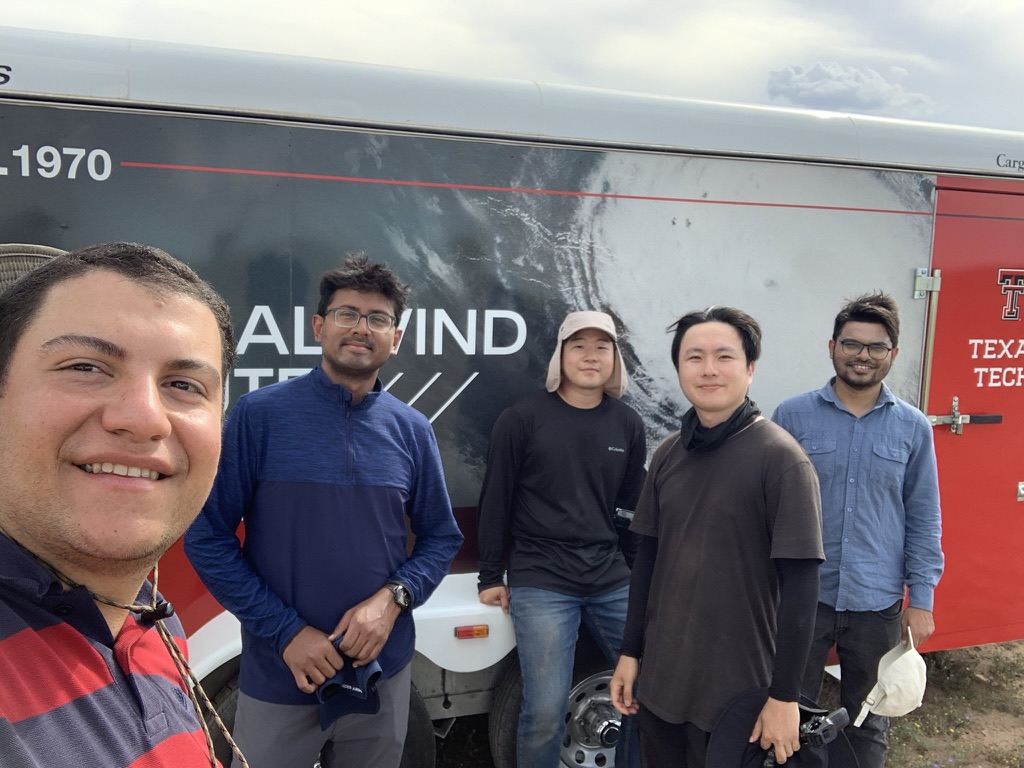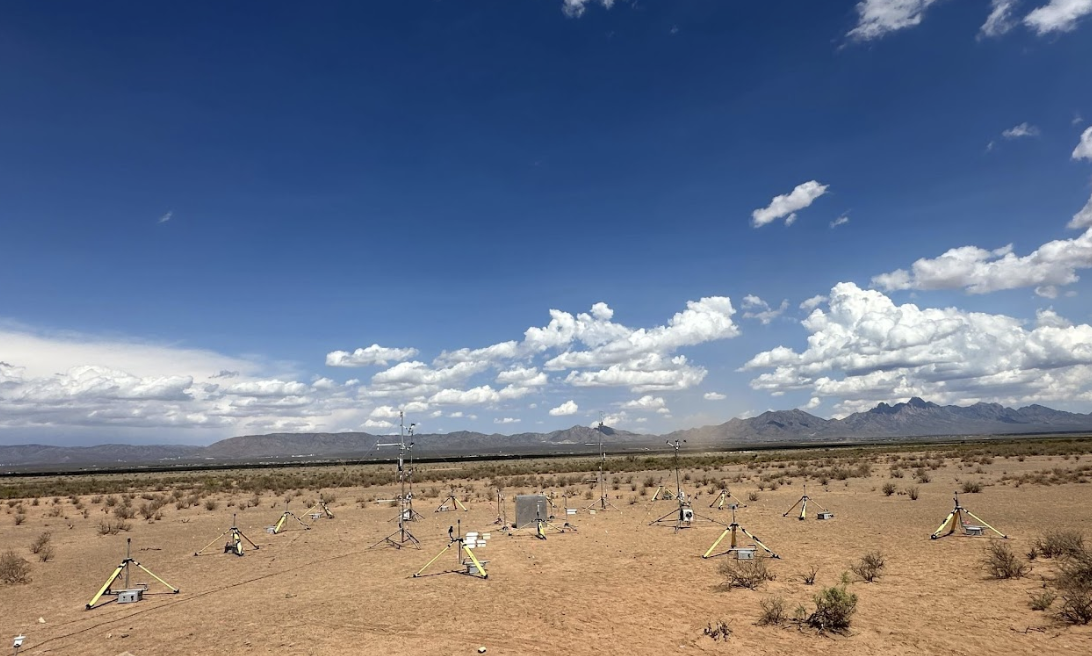NWI’s newest faculty member, Faiaz Khaled, shares his journey to TTU and evolving wind science research.

For Dr. Faiaz Khaled, the path to becoming a faculty member at Texas Tech University was anything but straightforward. Born and raised in Dhaka, Bangladesh, he grew up surrounded by academics—his father a mechanical engineering professor, his grandfather a professor of mathematics. Yet, despite his family’s background, Khaled never imagined himself becoming a professor.
“I was more on the side of, oh, I would probably like to pursue engineering.”
Civil engineering, especially structures like bridges and buildings, was what first captured his interest. After earning his undergraduate degree in civil engineering in 2016, he began looking for graduate opportunities abroad. While funded positions in structural engineering were scarce, he earned an offer from Louisiana State University (LSU)—his sole opportunity to pursue his passion in structures.
That decision became a turning point. At LSU, Khaled was introduced to wind engineering through both computational modeling and wind tunnel experiments under the excellent supervision of Dr. Aly Mousaad Aly. The core skills in CFD simulations and wind tunnel experiments were established during the initial three years of his PhD. His PhD research bridged both worlds, and he quickly recognized the unique role wind played in shaping the built environment. It was also during this time that Texas Tech began to appear on his radar.
“Whenever you wanted to validate models, the gold standard was Texas Tech’s field data.”
Even before setting foot in Lubbock, he was relying on Tech’s resources to publish his first papers.
After completing his PhD in 2022, Khaled considered industry offers but ultimately chose research. He decided to join University of Illinois Urbana Champaign (UIUC) as a postdoctoral research associate under the supervision of Dr. Frank Lombardo. He gained experience with large-scale collaborative projects and field experiments during his postdoctoral position. These projects required strong skills in CFD simulations and wind tunnel testing as well, competencies he had primarily developed during his PhD. More importantly, his postdoctoral experience provided valuable exposure and opportunities to engage with senior researchers, while expanding his expertise to encompass straight-line winds and tornado-like vortex flows.

Khaled (right) with former group member Dr. Daniel Rhee (left) and postdoc advisor Dr. Frank Lombardo (center) at the 2025 Symposium on Wind Science and Engineering: Research, Education, and Practice in honor of Kishor Mehta.
By late 2023, he was preparing faculty applications. When Texas Tech opened a position seeking someone who could bridge engineering and atmospheric science—especially with computational expertise—it felt like the perfect fit. He joined Tech in 2024 as part of the National Wind Institute’s strategic faculty initiative.
Now, a year into his role, Khaled is grateful not only for the opportunity to work alongside some of the biggest names in wind engineering, but also for the support and collaboration that NWI offers. His most recent field project, conducted in collaboration with UIUC, combined Tech’s StickNet platforms with experimental devices like sonic anemometers and pressure sensors to collect near-surface high-resolution data around building models, with the goal of promoting wider recognition of CFD as a dependable tool in wind engineering.
“One of the things that makes Texas Tech unique is how accessible the resources are.”

Khaled’s first field project as a professor at Texas Tech at the Jordana Experimental Range in New Mexico.
“As a new faculty member, being able to use StickNets and collaborate so freely is something I haven’t seen anywhere else.”
Looking back, Khaled is glad he chose the less certain but more fulfilling path of academia over industry.
“Don’t give up on your dreams early,” he advises his students.
“Sometimes you have to sacrifice short-term rewards to pursue the work you truly enjoy.”
From his beginnings in Dhaka to his new life in Lubbock, Khaled’s journey reflects
that philosophy. And at Texas Tech, he’s found not only a place to continue pushing
the boundaries of wind engineering—but a community that shares his passion for it.
Learn more about Dr. Khaled’s research here.
